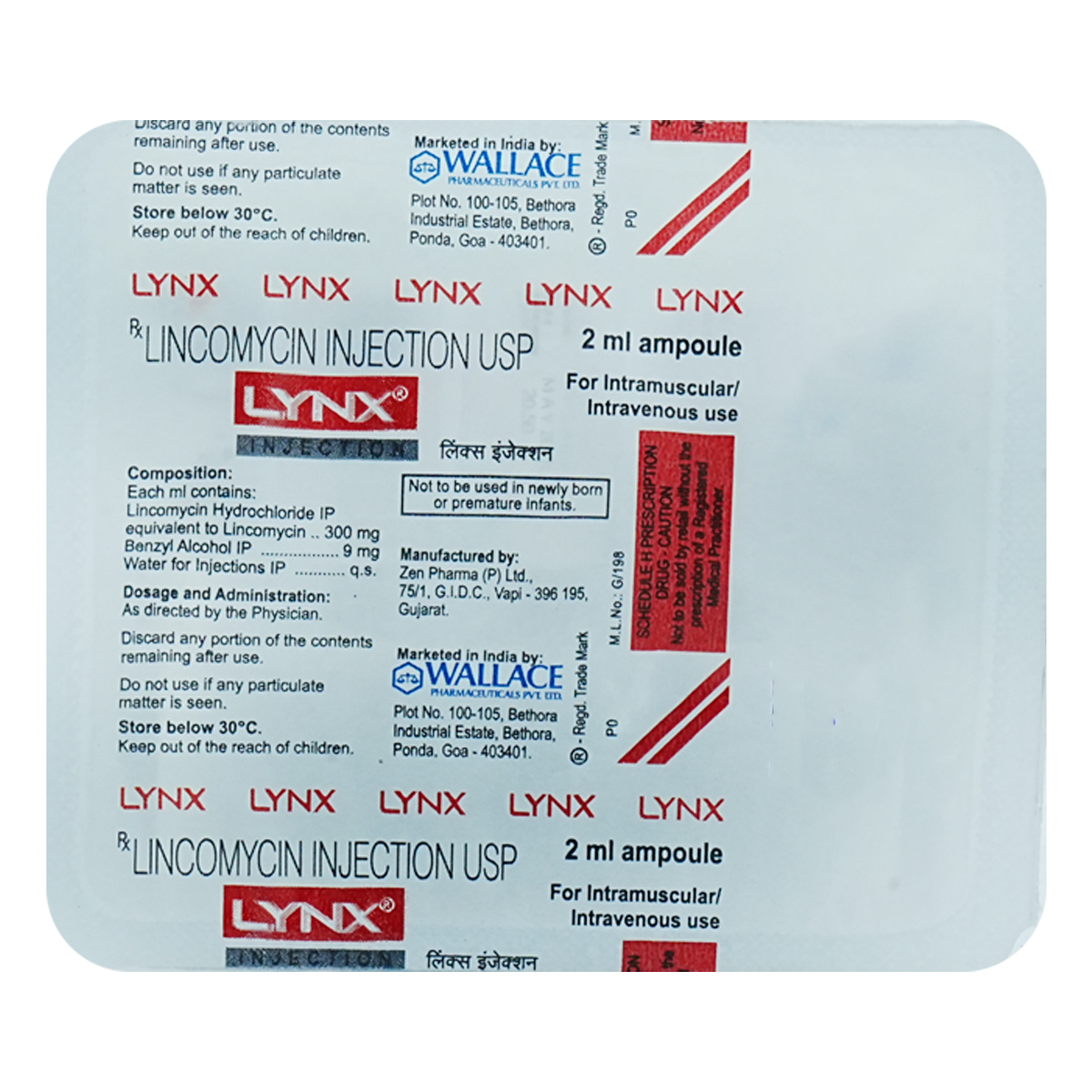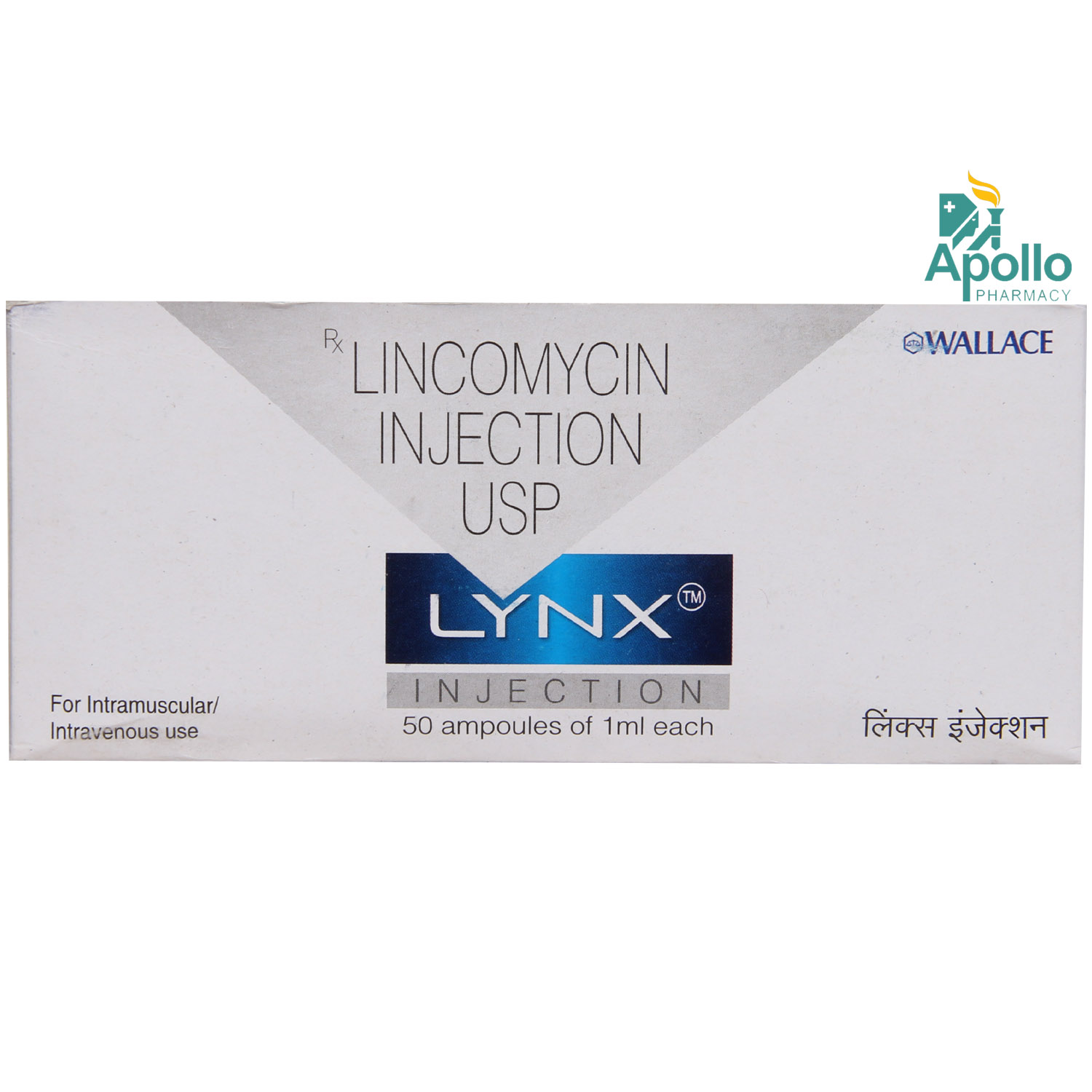Shelinc 300mg Injection

MRP ₹9.9
(Inclusive of all Taxes)
₹1.5 Cashback (15%)
know your delivery time
Provide Delivery Location
Composition :
Manufacturer/Marketer :
Consume Type :
Return Policy :

Secure Payment

Trusted by 8 Crore Indians

Genuine Products
Therapeutic Class
Country of origin
Manufacturer/Marketer address
FAQs
Do not take antacids that contain aluminium or magnesium hydroxide within 2 hours before or after you take Shelinc 300mg Injection. These antacids can interact with Shelinc 300mg Injection and make them less effective when taken at the same time.
Never stop the treatment with Shelinc 300mg Injection on your own as the infection may come back again (relapse) if the prescribed treatment is not completely taken before stopping Shelinc 300mg Injection once discuss this with your doctor.
If you forget to take Shelinc 300mg Injection, take your dose as soon as possible. If it is almost time for the next dose, skip that dose and take the next one when it is due. If in doubt, please contact your doctor. Do not take a double dose to make up for a forgotten dose.
Shelinc 300mg Injection contains lactose monohydrate so if you have intolerance towards sugars, consult your doctor before starting Shelinc 300mg Injection.
Shelinc 300mg Injection can cause diarrhoea, which may be a sign of a new infection. If you have diarrhoea that is watery or bloody, call your doctor. Do not use anti-diarrhoea medicine unless your doctor tells you to.
You should avoid taking Shelinc 300mg Injection if you have colitis (intestine inflammation), heart rhythm disorder, liver disease (like jaundice), and muscle problem (like myasthenia gravis). Contact your doctor if you have these conditions before taking Shelinc 300mg Injection.
Shelinc 300mg Injection is a Schedule H drug that can be taken only if your doctor has prescribed it. Taking it on your own or self-medication can cause unwanted side-effects and lead to antibiotic resistance, thereby lowering its efficiency.
Yes, in some cases, people using Shelinc 300mg Injection may get fungal skin infection known as thrush. It happens because Shelinc 300mg Injection also kills harmless bacteria that protects against thrush.
Clinical evidence suggests that Shelinc 300mg Injection does not affect the working of any oral birth control pills and contraceptives devices.
A person should tell their doctor if they have asthma, an intestinal disorder like colitis, severe allergies, and liver or kidney disease. In this condition, the doctor will prescribe the medication after checking the medical condition of the patient.
Shelinc 300mg Injection may make bacterial vaccine-like typhoid vaccine not work well, so it is best to avoid taking any vaccine while taking Shelinc 300mg Injection.
Disclaimer
Alcohol
Safe if prescribed
Shelinc 300mg Injection should not be taken until prescribed if you are taking alcohol. Keep your doctor informed if you drink alcohol.
Pregnancy
Consult your doctor
There is insufficient information available about the use of Shelinc 300mg Injection during pregnancy. Therefore you should not use Shelinc 300mg Injection during pregnancy unless explicitly advised by your doctor.
Breast Feeding
Consult your doctor
Shelinc 300mg Injection is partially passed through the mother’s milk. Therefore it should not be used if you are breastfeeding.
Driving
Safe if prescribed
There are no data available about the influence of Shelinc 300mg Injection on the ability to drive or operate machines. However, Shelinc 300mg Injection may cause dizziness and seizures, so make sure you are not affected before driving or operating machinery.
Liver
Consult your doctor
You should tell your doctor if you have liver problems as your doctor may need to alter the normal dose.
Kidney
Consult your doctor
You should tell your doctor if you have kidney problems as your doctor may need to alter the normal dose.
Children
Safe if prescribed
Shelinc 300mg Injection to be taken with caution, especially if you are children below the age of 12. Your doctor may adjust your dose depending upon your age.
Product Substitutes
About Shelinc 300mg Injection
Shelinc 300mg Injection belongs to a group of medicines known as 'antibiotics'. It is used to treat various bacterial infections of the respiratory system (like pneumonia, bronchitis, tonsillitis, pharyngitis, and sinusitis), skin, ear infections, and sexually transmitted infections. Bacterial infection is a condition in which bacteria grows in the body and cause infection. It can target any body part and multiple very quickly.
Shelinc 300mg Injection slows the growth or sometimes kills the harmful bacteria by preventing the production of proteins required by the bacteria for its survival. Shelinc 300mg Injection does not treat a viral infection like flu or a common cold.
Shelinc 300mg Injection will be administered by a healthcare professional; do not self-administer. In some cases, you may experience dizziness, headache, indigestion, vaginal inflammation, stomach pain, retching (nearly vomit), or rash with redness of the skin. Most of these side effects of Shelinc 300mg Injection do not require medical attention and gradually resolve over time. However, if the side effects persist or worsen, please consult your doctor.
If you are allergic to Shelinc 300mg Injection or any other medicines, please tell your doctor. If you are pregnant or breastfeeding, please inform your doctor before taking Shelinc 300mg Injection. Shelinc 300mg Injection is contraindicated in patients with severe kidney problems and patients undergoing hemodialysis (a process of purifying blood by filtering out extra fluids and wastes when kidneys are not working). If you notice blood in stools or have severe stomach pain with diarrhoea, contact your doctor immediately. If you have high blood pressure, hypernatraemia (high levels of sodium in the blood), hyperaldosteronism (excessive production of aldosterone hormone), pulmonary oedema (accumulation of fluid in the lungs), kidney or heart problems, inform your doctor before taking Shelinc 300mg Injection.
Uses of Shelinc 300mg Injection
Medicinal Benefits Mweb
Key Benefits
Shelinc 300mg Injection slows the growth or sometimes kills the harmful bacteria by preventing the production of proteins required by the bacteria for its survival. It prevents and treats bacterial infections like throat and sinus infections, chest infections (like bronchitis and pneumonia), ear infections, mouth and dental infections, eye infections, skin and tissue infections (like acne), stomach and intestinal infections. It is better tolerated and has more effective tissue penetration compared to other similar antibiotics like erythromycin. Doctors prescribe Shelinc 300mg Injection for people who are intolerant of penicillin antibiotics. Besides this, it also helps prevent infection following burns, surgery or dental procedure, sexually transmitted infections, bone infections, or scarlet fever (bacterial illness with strep throat).
Directions for Use
Side Effects of Shelinc 300mg Injection
- Dizziness
- Headache
- Indigestion
- Stomach pain
- Vaginal inflammation
- Retching (nearly vomit)
- Rash with redness of the skin
Drug Warnings
Tell your doctor if you have liver problems (jaundice), muscle problems (myasthenia gravis), heart rhythm disorder (arrhythmia), electrolyte imbalance (low potassium or magnesium level). In rare cases, the use of Shelinc 300mg Injection can cause diarrhoea, so if you have watery or bloody diarrhoea, stop taking Shelinc 300mg Injection and call your doctor. However, do not take any anti-diarrheal medicine until your doctor tells you. It is not known whether Shelinc 300mg Injection harms a baby in pregnancy or not. Consult your doctor if you are pregnant, planning for pregnancy, or breastfeeding before using Shelinc 300mg Injection. Do not take Shelinc 300mg Injection if you are allergic to Shelinc 300mg Injection or other macrolide antibiotics, using cholesterol-lowering drugs (statins like simvastatin, lovastatin, etc.), anti-gout or anti-arthritis drugs (colchicine), and medicine for treating overactive bladder (tolterodine). Shelinc 300mg Injection is not recommended for patients with pneumonia who are judged to be inappropriate for oral therapy due to moderate to severe illness or risk factors.
Drug-Drug Interactions Checker List
- PIMOZIDE
- AMISULPRIDE
- ERGOTAMINE
- DIHYDROERGOTAMINE
- SIMVASTATIN
- TOLTERODINE
- COLCHICINE
- DOMPERIDONE
Habit Forming
Special Advise
A bacteria culture test is done to check the type of bacterial infection.
Diet & Lifestyle Advise
- Probiotics should be taken after taking the full course of Shelinc 300mg Injection to restore some of the healthy bacteria in the intestines that may have been killed.
- Taking probiotics after antibiotic treatment can reduce the risk of antibiotic-associated diarrhoea. Certain fermented foods like yoghurt, cheese, sauerkraut, kombucha, and kimchi can help restore the intestine's good bacteria.
- Include more fibre-enriched food in your diet, as it can be easily digested by your gut bacteria, which helps stimulate their growth. Thus, fibre foods may help restore healthy gut bacteria after a course of antibiotics.
- Whole grains like whole-grain bread, brown rice should be included in your diet. Avoid taking too much calcium, iron-enriched foods, and drinks as it might affect the working of Shelinc 300mg Injection.
- Avoid intake of alcoholic beverages with Shelinc 300mg Injection as it can make you dehydrated and affect your sleep. This can make it harder for your body to aid the Shelinc 300mg Injection in fighting off infections.
All Substitutes & Brand Comparisons
RX
Out of StockMalolinc 300mg Injection
₹17.3
(₹7.79/ 1ml)
12% CHEAPERRX
Out of StockLincoriv 300mg Injection
East African Overseas (I) Pvt Ltd
₹18.9
(₹8.51/ 1ml)
4% CHEAPERRX
Out of StockLincofin 300mg Injection
₹9.5
(₹8.55/ 1ml)
4% CHEAPER

Have a query?



